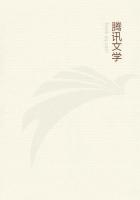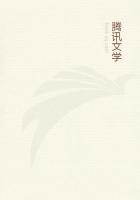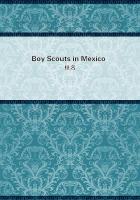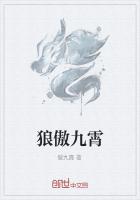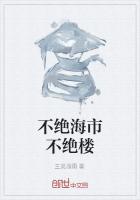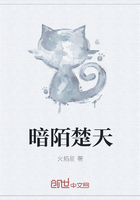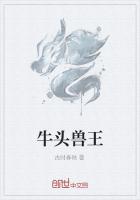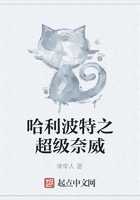"There was, however," says Gogol, "none of the austerity of the Catholic knight in them; they bound themselves to no vows or fasts;they put no self-restraint upon themselves or mortified their flesh, but were indomitable like the rocks of the Dnieper among which they lived, and in their furious feasts and revels they forgot the whole world.That same intimate brotherhood, maintained in robber communities, bound them together.They had everything in common--wine, food, dwelling.A perpetual fear, a perpetual danger, inspired them with a contempt towards life.The Cossack worried more about a good measure of wine than about his fate.One has to see this denizen of the frontier in his half-Tatar, half-Polish costume--which so sharply outlined the spirit of the borderland--galloping in Asiatic fashion on his horse, now lost in thick grass, now leaping with the speed of a tiger from ambush, or emerging suddenly from the river or swamp, all clinging with mud, and appearing an image of terror to the Tatar...."Little by little the community grew and with its growing it began to assume a general character.The beginning of the sixteenth century found whole villages settled with families, enjoying the protection of the Cossacks, who exacted certain obligations, chiefly military, so that these settlements bore a military character.The sword and the plough were friends which fraternised at every settler's.On the other hand, Gogol tells us, the gay bachelors began to make depredations across the border to sweep down on Tatars' wives and their daughters and to marry them."Owing to this co-mingling, their facial features, so different from one another's, received a common impress, tending towards the Asiatic.And so there came into being a nation in faith and place belonging to Europe; on the other hand, in ways of life, customs, and dress quite Asiatic.It was a nation in which the world's two extremes came in contact; European caution and Asiatic indifference, niavete and cunning, an intense activity and the greatest laziness and indulgence, an aspiration to development and perfection, and again a desire to appear indifferent to perfection."All of Ukraine took on its colour from the Cossack, and if I have drawn largely on Gogol's own account of the origins of this race, it was because it seemed to me that Gogol's emphasis on the heroic rather than on the historical--Gogol is generally discounted as an historian--would give the reader a proper approach to the mood in which he created "Taras Bulba," the finest epic in Russian literature.
Gogol never wrote either his history of Little Russia or his universal history.Apart from several brief studies, not always reliable, the net result of his many years' application to his scholarly projects was this brief epic in prose, Homeric in mood.The sense of intense living, "living dangerously"--to use a phrase of Nietzsche's, the recognition of courage as the greatest of all virtues--the God in man, inspired Gogol, living in an age which tended toward grey tedium, with admiration for his more fortunate forefathers, who lived in "a poetic time, when everything was won with the sword, when every one in his turn strove to be an active being and not a spectator." Into this short work he poured all his love of the heroic, all his romanticism, all his poetry, all his joy.Its abundance of life bears one along like a fast-flowing river.And it is not without humour, a calm, detached humour, which, as the critic Bolinsky puts it, is not there merely "because Gogol has a tendency to see the comic in everything, but because it is true to life."Yet "Taras Bulba" was in a sense an accident, just as many other works of great men are accidents.It often requires a happy combination of circumstances to produce a masterpiece.I have already told in my introduction to "Dead Souls"[1] how Gogol created his great realistic masterpiece, which was to influence Russian literature for generations to come, under the influence of models so remote in time or place as "Don Quixote" or "Pickwick Papers"; and how this combination of influences joined to his own genius produced a work quite new and original in effect and only remotely reminiscent of the models which have inspired it.And just as "Dead Souls" might never have been written if "Don Quixote" had not existed, so there is every reason to believe that "Taras Bulba" could not have been written without the "Odyssey." Once more ancient fire gave life to new beauty.And yet at the time Gogol could not have had more than a smattering of the "Odyssey." The magnificent translation made by his friend Zhukovsky had not yet appeared and Gogol, in spite of his ambition to become a historian, was not equipped as a scholar.But it is evident from his dithyrambic letter on the appearance of Zhukovsky's version, forming one of the famous series of letters known as "Correspondence with Friends," that he was better acquainted with the spirit of Homer than any mere scholar could be.That letter, unfortunately unknown to the English reader, would make every lover of the classics in this day of their disparagement dance with joy.He describes the "Odyssey" as the forgotten source of all that is beautiful and harmonious in life, and he greets its appearance in Russian dress at a time when life is sordid and discordant as a thing inevitable, "cooling" in effect upon a too hectic world.He sees in its perfect grace, its calm and almost childlike simplicity, a power for individual and general good."It combines all the fascination of a fairy tale and all the simple truth of human adventure, holding out the same allurement to every being, whether he is a noble, a commoner, a merchant, a literate or illiterate person, a private soldier, a lackey, children of both sexes, beginning at an age when a child begins to love a fairy tale--all might read it or listen to it, without tedium." Every one will draw from it what he most needs.Not less than upon these he sees its wholesome effect on the creative writer, its refreshing influence on the critic.But most of all he dwells on its heroic qualities, inseparable to him from what is religious in the "Odyssey"; and, says Gogol, this book contains the idea that a human being, "wherever he might be, whatever pursuit he might follow, is threatened by many woes, that he must need wrestle with them--for that very purpose was life given to him--that never for a single instant must he despair, just as Odysseus did not despair, who in every hard and oppressive moment turned to his own heart, unaware that with this inner scrutiny of himself he had already said that hidden prayer uttered in a moment of distress by every man having no understanding whatever of God."Then he goes on to compare the ancient harmony, perfect down to every detail of dress, to the slightest action, with our slovenliness and confusion and pettiness, a sad result--considering our knowledge of past experience, our possession of superior weapons, our religion given to make us holy and superior beings.And in conclusion he asks:
Is not the "Odyssey" in every sense a deep reproach to our nineteenth century?
[1] Everyman's Library, No.726.
An understanding of Gogol's point of view gives the key to "Taras Bulba." For in this panoramic canvas of the Setch, the military brotherhood of the Cossacks, living under open skies, picturesquely and heroically, he has drawn a picture of his romantic ideal, which if far from perfect at any rate seemed to him preferable to the grey tedium of a city peopled with government officials.Gogol has written in "Taras Bulba" his own reproach to the nineteenth century.It is sad and joyous like one of those Ukrainian songs which have helped to inspire him to write it.And then, as he cut himself off more and more from the world of the past, life became a sadder and still sadder thing to him; modern life, with all its gigantic pettiness, closed in around him, he began to write of petty officials and of petty scoundrels, "commonplace heroes" he called them.But nothing is ever lost in this world.Gogol's romanticism, shut in within himself, finding no outlet, became a flame.It was a flame of pity.He was like a man walking in hell, pitying.And that was the miracle, the transfiguration.Out of that flame of pity the Russian novel was born.
JOHN COURNOS
TARAS BULBA

